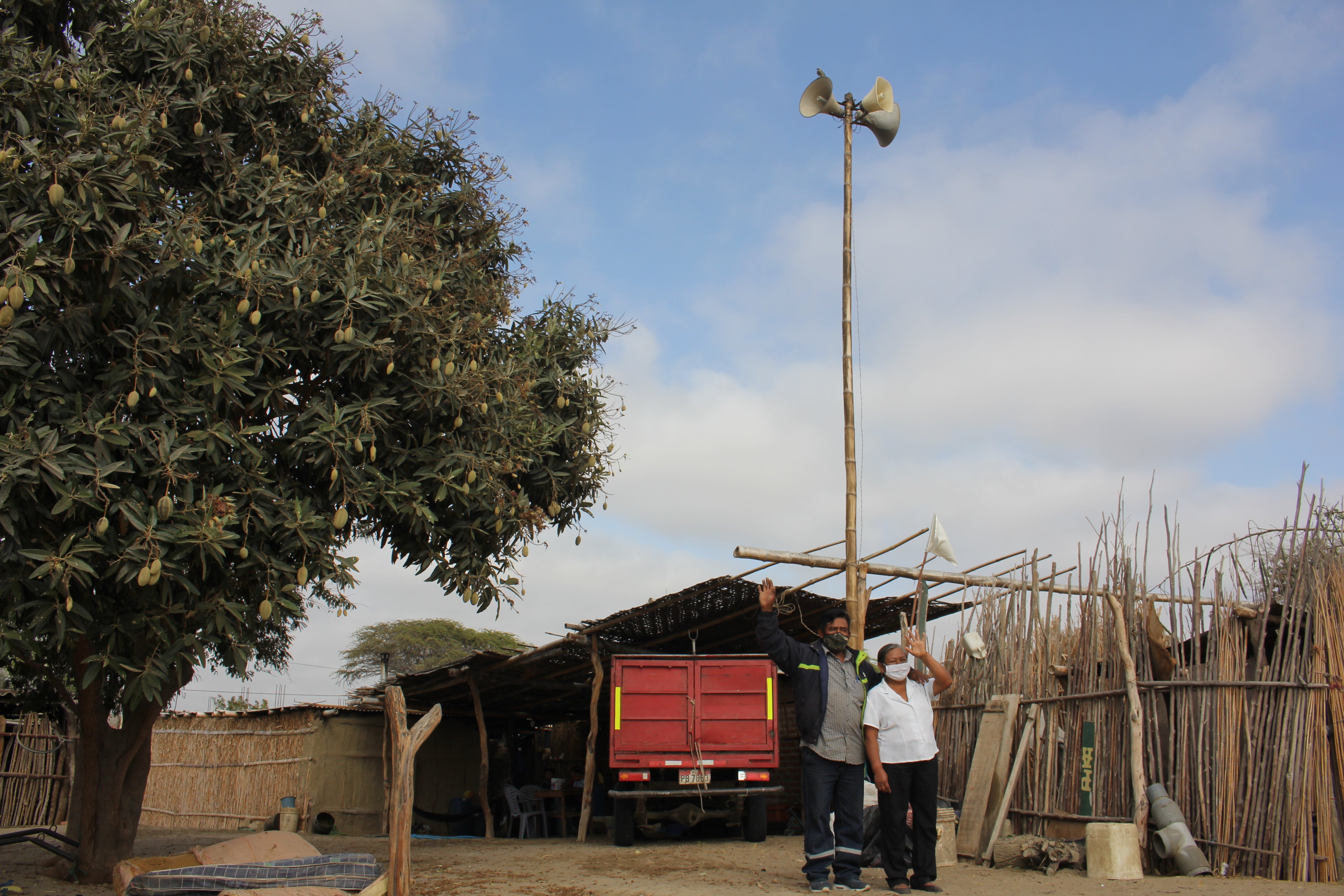Video
Community radio as a tool that empowers people facing risk
Story of Onda Popular radio station of Tabanco, El Tallán, Piura

In many parts of the country, the ‘radios-caña’ are the only form of communication available to communities that are beyond the reach of local and national radio stations, so they are a key mechanism to inform, convene, educate, motivate and organize people in their own forms of expression. They are tools that empower people facing risk.
--
After the disaster caused by El Niño Costero in the regions of Piura and Lambayeque, in 2017, the United Nations Population Fund has carried out different initiatives aimed at strengthening the resilience of the affected populations and their capacity to build governance from the bottom up of the community’s organization, for the prevention and attention of sexual and reproductive health and gender-based violence.
The actions have been carried out in coordination with different instances of the Peruvian government and United Nations agencies, within the framework of the European Commission Humanitarian Aid department’s Disaster Preparedness Programme (DIPECHO).
During 2019, in partnership with CARE Peru, activities were carried out to strengthen the dissemination of messages and the intervention capacities of the networks of community watchers in high-risk areas of Piura and Lambayeque, and support improvements in the equipments and facilities of community radios (‘radios-caña’).
In Piura, we worked with 10 networks of community watchers, all linked to ‘radios-caña’, that promote sexual and reproductive health and protect against gender-based violence. One of these is the Onda Popular radio station, located in the town of Tabanco, in the district of El Tallán, on the edge of the Panamericana Norte highway.
The Onda Popular radio station was founded in the 1980s by José Yovera Yovera and Josefina Sandoval Sernaqué, both community leaders and health promoters. At the beginning of 2020, with support from UNFPA, the network of community agents in Tabanco was trained in the use of various journalistic formats, such as interviews, production of radio spots and elaboration of press releases, and a small broadcasting booth was installed in the house of the Yovera Sandoval family.
Months later, during the health emergency by COVID-19, Onda Popular has continued to operate and has been a fundamental piece in convening and transmitting community decisions and government indications to prevent contagion. The communicators, who are husband and wife, have maintained the commitment to inform the population properly, to prevent health risks from the virus and to promote self-care in pregnant women.

